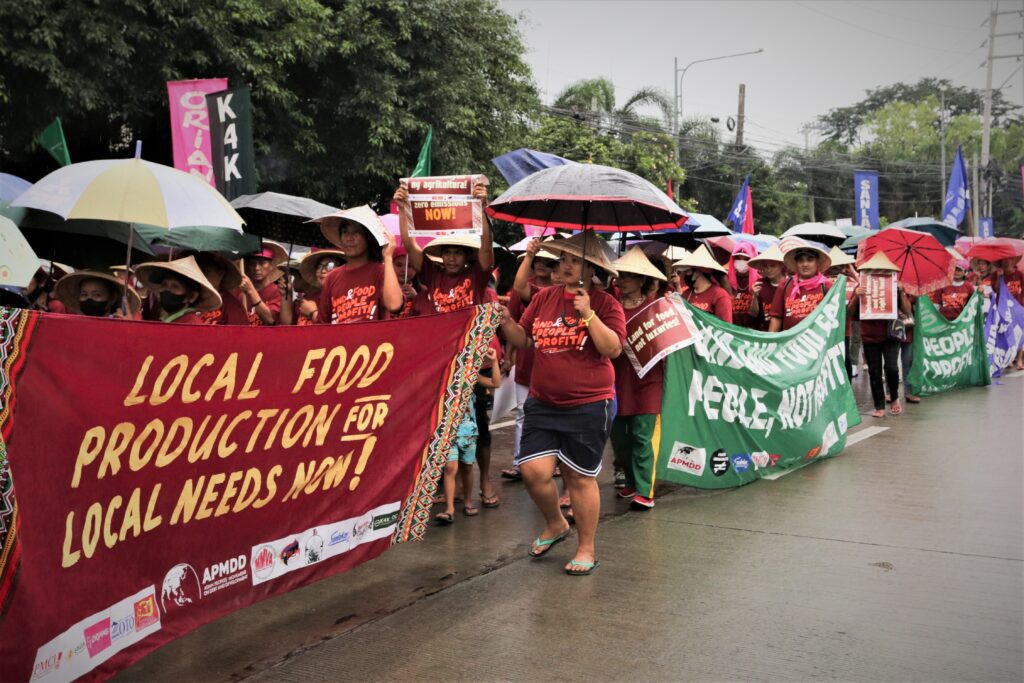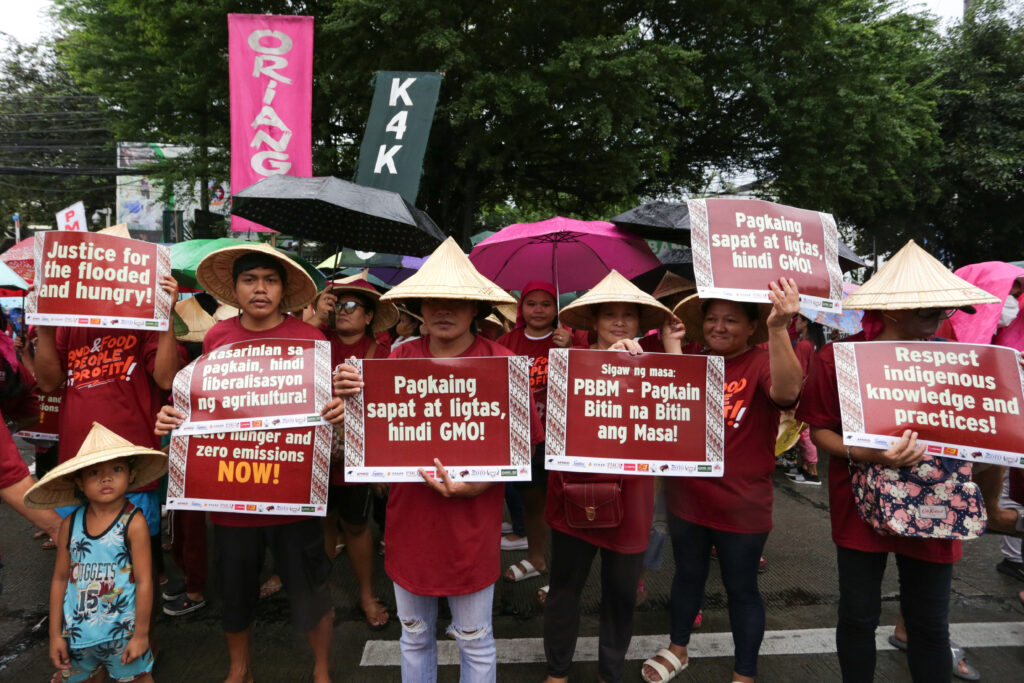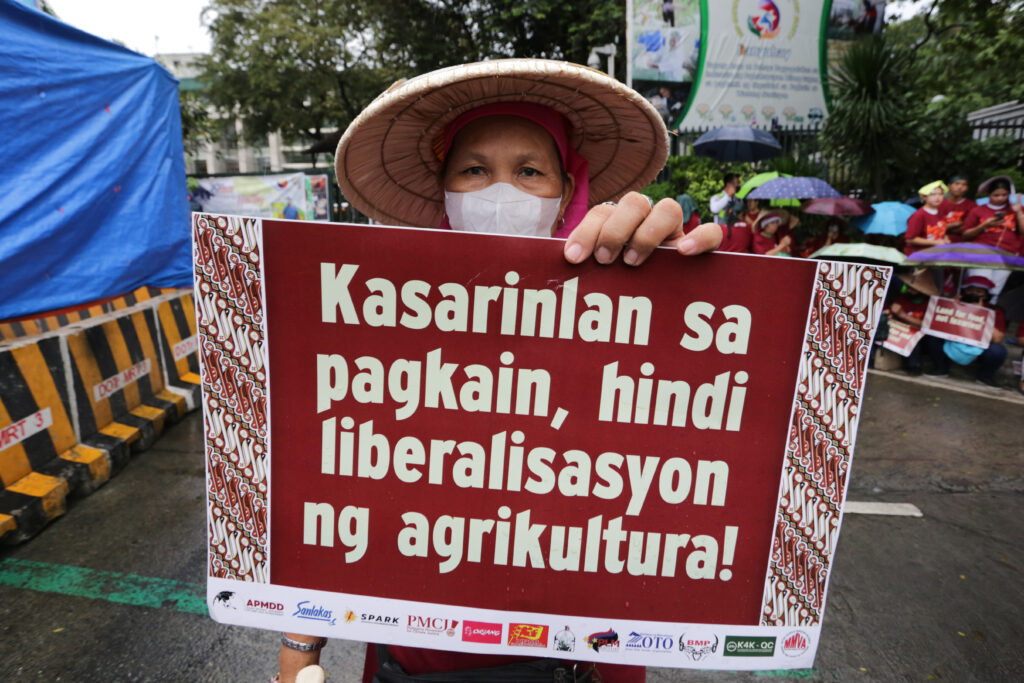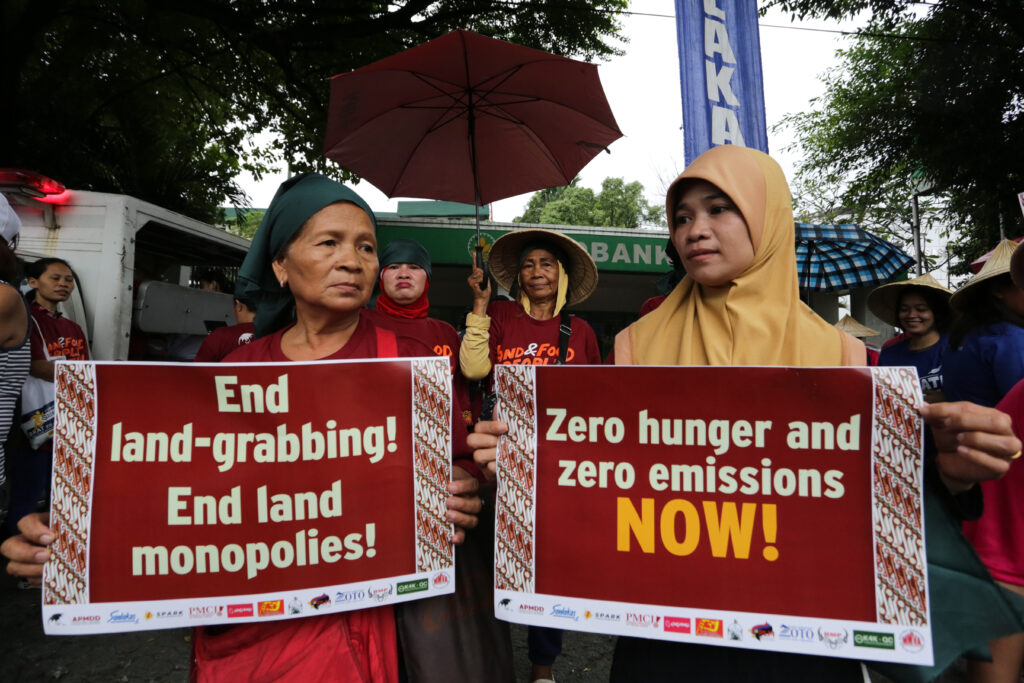Activist groups in seven countries held simultaneous mobilizations urging governments to address the ongoing global food and climate crisis.
In the Philippines, activists marched from the National Housing Authority (NHA) to the Department of Agriculture in Quezon City on October 19, 2023, to condemn the country’s “export-driven agricultural model”.
They called on their national government to safeguard the right to food, particularly in the face of mounting climate change impacts and deeply entrenched inequalities within the global food system.
The Asian Peoples’ Movement on Debt and Development (APMDD) reported similar protests occurring in six other countries – India, Pakistan, Nepal, Bangladesh, Thailand, and Indonesia.
The mobilizations coincided with the celebration of World Food Day and the World Food Forum, which runs from October 16-20 at the Food and Agriculture Organization (FAO) headquarters in Rome, Italy.
“We demand sustainable food systems that prioritize domestic food needs and ensure an ample supply of nutritious food for all,” said Lidy Nacpil, the coordinator of APMDD.
Nacpil said that the world is grappling with a major food crisis driven by rising food and energy prices, compounded by the adverse impacts of climate change.
The convergence of multiple crises has deepened global hunger, exacerbated by export-oriented, industrialized, and corporate-dominated agrifood systems.
Southern and Asian governments have allowed big agribusiness to monopolize land, seeds, chemicals, and agricultural technology, perpetuating the legacy of colonialism and neo-colonial policies based on import-dependence and export-orientation,” she said.
Nacpil added that the focus on cash crop plantations for global exports “has marginalized staple food farms meant for domestic consumption”.
She added that in the face of escalating climate impacts on food security, “we must prioritize our capacity to produce food for our own needs”.
Over half of the world’s undernourished population resides in Asia, totaling 402 million people, which accounts for 55 percent of the global population of undernourished individuals, according to the FAO.
APMDD cited a recent FAO analysis that revealed “billions of people worldwide cannot afford a healthy diet.”
The analysis also pointed out that the most significant increase in the cost of a nutritious diet, and consequently, the greatest rise in the number of people unable to afford it, is happening in Asia.
The cost of a healthy diet has surged, rendering it 4 percent more expensive, which means that 78 million more people in Asia can no longer afford it.
The lack of government regulation concerning large food corporations has led to corporate land acquisitions, militarization of rural areas, food price speculation and manipulation, soil degradation due to monocultures and excessive chemical use, the criminalization of independent farming, and the mass displacement of farmers worldwide, according to Flora Santos of K4K-QC and the Metro Manila Vendors Association.
Santos said the call for Asian governments to end agricultural monopolies, reduce the use of pesticides and herbicides, democratize land, seeds, and technological ownership, and empower smallholder food producers to participate, if not lead, in decision-making processes related to national and local agriculture.
Val Vibal of Aniban ng Manggagawang Agrikultura said, “The repercussions of dominant food trade models are evident: severe domestic food shortages in the Global South, amid record-high global food prices, have plunged farmers into debt, poverty, and forced migration, leaving many people hungry.”
Vibal urged Asian governments to protect farmers and vulnerable groups, prioritize staple food over export crop plantations, halt land grabs, and support local, independent, and sustainable food production for domestic needs.
Considering Asia’s status as the world’s most disaster-prone region, billions of dollars worth of food losses have been attributed to increasingly severe and frequent typhoons, floods, droughts, and landslides, all linked to the worsening climate crisis.
Nacpil stressed the need for Asian governments to swiftly, equitably, and justly phase out fossil fuels while ushering in renewable energy sources.
Governments were also urged to allocate resources toward building climate-resilient food systems and to support traditional and indigenous knowledge and practices in sustainable food production through people’s agroecology.
All photos by APMDD











0 Comments